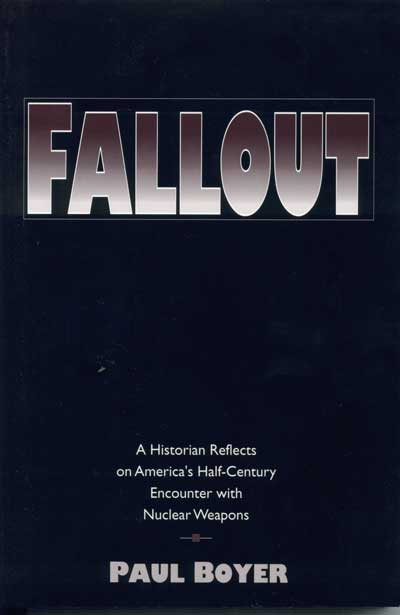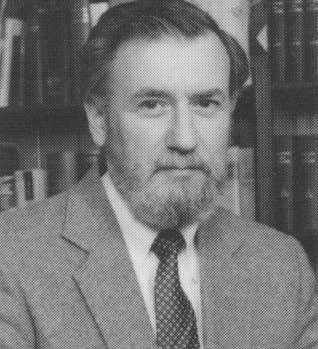| click here to read the full text of this book | leave / read comments and critiques of the book |

Fallout
A Historian Reflects on America’s Half-Century Encounter with Nuclear Weapons
Paul Boyer
“This work differs from [Boyer’s] two previous book-length engagements of the atomic subject . . . in that here, Boyer writes not only from the perspective of a cultural historian, but also as a concerned citizen and sometime antinuclear activist. The scope is far-reaching. . . . skillfull as always, making this informative, engaging and perhaps most important for Boyer, provocative.” —Publishers Weekly
 The “fallout” from the nuclear arms race with its atmospheric tests,
civil defense drills, superpower confrontations, and ever-present specter
of mass annihilation was not limited to strontium-90 and other deadly substances:
it also includes the mental and imaginative world of an entire generation,
adults and children alike. It produced not only nightmares, worried conversations,
and activist campaigns but also a diverse array of cultural artifacts,
ranging from poems, novels, and paintings to popular songs, slang, movies,
advertisements, radio shows, and TV specials. Without understanding this
larger impact of the nuclear reality, large swaths of American thought
and culture in the half century after 1945 become opaque and incomprehensible.
The “fallout” from the nuclear arms race with its atmospheric tests,
civil defense drills, superpower confrontations, and ever-present specter
of mass annihilation was not limited to strontium-90 and other deadly substances:
it also includes the mental and imaginative world of an entire generation,
adults and children alike. It produced not only nightmares, worried conversations,
and activist campaigns but also a diverse array of cultural artifacts,
ranging from poems, novels, and paintings to popular songs, slang, movies,
advertisements, radio shows, and TV specials. Without understanding this
larger impact of the nuclear reality, large swaths of American thought
and culture in the half century after 1945 become opaque and incomprehensible.
The essays range widely, from a discussion of the shattering impact of the news of Hiroshima and Nagasaki on a warweary nation in 1945 to ruminations on the 1995 Enola Gay controversy, when a proposed fiftieth-anniversary commemorative exhibit of the atomic bombing of Japan at the Smithsonian’s National Museum of American History generated bitter controversy.
The book makes clear that even though the Cold War and the superpower nuclear arms race have ended, images of nuclear menace, and troubled memories of the atomic past, continue to stir uneasily in the American consciousness and to provide a fertile theme for mass culture productions, from video games to Hollywood films to best-selling thrillers. Fallout offers a fresh, readable, and timely look at a central shaping force in American culture over the past half century.
Paul Boyer is Merle Curti Professor of History and Director of the Institute
for Research in the Humanities at the University of Wisconsin–Madison and
the author of When Time Shall Be No More: Prophecy Belief in Modern
American Culture. He is also the editor-in-chief of the forthcoming
Oxford
Companion to United States History.
|
Mar 1998 History/Culture 280 pp. 6 x 9 |
This title is no longer available in a traditional print edition. Click here for free access to the book’s full text. |

